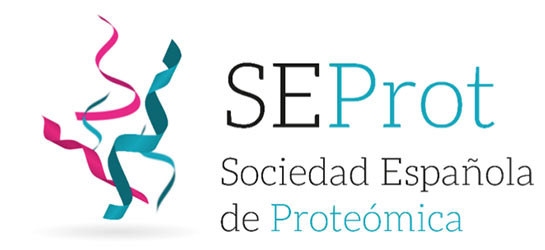Multiomics Profiling of Alzheimer’s Disease Serum for the Identification of Autoantibody Biomarkers
Pablo San Segundo-Acosta, Ana Montero-Calle, August Jernbom-Falk, Miren Alonso-Navarro, Elisa Pin, Eni Andersson, Cecilia Hellström, MariCruz Sánchez-Martínez, Alberto Rábano, Guillermo Solís-Fernández, Alberto Peláez-García, Javier Martínez-Useros, María Jesús Fernández-Aceñero, Anna Månberg, Peter Nilsson, and Rodrigo Barderas
Journal of Proteome Research (2021); DOI: 10.1021/acs.jproteome.1c00630
Abstract:
New biomarkers of Alzheimer’s disease (AD) with a diagnostic value in preclinical and prodromal stages are urgently needed. AD-related serum autoantibodies are potential candidate biomarkers. Here, we aimed at identifying AD-related serum autoantibodies using protein microarrays and mass spectrometry-based methods. To this end, an untargeted complementary screening using high-density (42,100 antigens) and low-density (384 antigens) planar protein-epitope signature tag (PrEST) arrays and an immunoprecipitation protocol coupled to mass spectrometry analysis were used for serum autoantibody profiling. From the untargeted screening phase, 377 antigens corresponding to 338 proteins were selected for validation. Out of them, IVD, CYFIP1, and ADD2 seroreactivity was validated using 128 sera from AD patients and controls by PrEST-suspension bead arrays, and ELISA or luminescence Halotag-based bead immunoassay using full-length recombinant proteins. Importantly, IVD, CYFIP1, and ADD2 showed in combination a noticeable AD diagnostic ability. Moreover, IVD protein abundance in the prefrontal cortex was significantly two-fold higher in AD patients than in controls by western blot and immunohistochemistry, whereas CYFIP1 and ADD2 were significantly down-regulated in AD patients. The panel of AD-related autoantigens identified by a comprehensive multiomics approach may provide new insights of the disease and should help in the blood-based diagnosis of Alzheimer’s disease. Mass spectrometry raw data are available in the ProteomeXchange database with the access number PXD028392..

